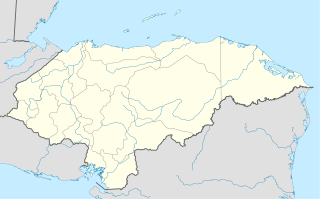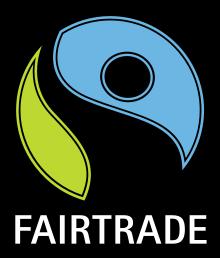
Fair trade is an arrangement designed to help producers in developing countries achieve sustainable and equitable trade relationships. Members of the fair trade movement add the payment of higher prices to exporters, as well as improved social and environmental standards. The movement focuses in particular on commodities, or products that are typically exported from developing countries to developed countries, but is also used in domestic markets, most notably for handicrafts, coffee, cocoa, wine, sugar, fruit, flowers, and gold. The movement seeks to promote greater equity in international trading partnerships through dialogue, transparency, and respect. It promotes sustainable development by offering better trading conditions to, and securing the rights of, marginalized producers and workers in developing countries. Fair trade is grounded in three core beliefs; first, producers have the power to express unity with consumers. Secondly, the world trade practices that currently exist promote the unequal distribution of wealth between nations. Lastly, buying products from producers in developing countries at a fair price is a more efficient way of promoting sustainable development than traditional charity and aid.

The Fairtrade certification initiative was created to form a new method for economic trade. This method takes an ethical standpoint, and considers the producers first.
A worker cooperative is a cooperative that is owned and self-managed by its workers. This control may mean a firm where every worker-owner participates in decision-making in a democratic fashion, or it may refer to one in which management is elected by every worker-owner who each have one vote.

San Juan, Intibucá lies in the western highlands of Honduras between Gracias and La Esperanza.
Maraba coffee is grown in the Maraba area of southern Rwanda. Maraba's coffee plants are the Bourbon variety of the Coffea arabica species and are grown on fertile volcanic soils on high-altitude hills. The fruit is handpicked, mostly during the rainy season between March and May, and brought to a washing station in Maraba, where the coffee beans are extracted and dried. At several stages, the beans are sorted according to quality. The farmers receive credits based on the amount and quality of the beans they provide.
The coffee industry of Kenya is noted for its cooperative system of production, processing, milling, marketing, and auction system. About 70% of Kenyan coffee is produced by small- scale holders. It was estimated in 2012 that there were about 150,000 coffee farmers in Kenya and other estimates are that six million Kenyans were employed directly or indirectly in the coffee industry. The major coffee-growing regions in Kenya are the high plateaus around Mt. Kenya, the Aberdare Range, Kisii, Nyanza, Bungoma, Nakuru, Kericho and to a smaller scale in Machakos and Taita hills in Eastern and coast provinces respectively..

The International Fairtrade Certification Mark is an independent certification mark used in over 50 countries. It appears on products as an independent guarantee that a product has been produced according to Fairtrade political standards.

Equal Exchange is a for-profit Fairtrade worker-owned, cooperative headquartered in West Bridgewater, Massachusetts. Equal Exchange distributes organic, gourmet coffee, tea, sugar, bananas, avocados, cocoa, and chocolate bars produced by farmer cooperatives in Latin America, Africa, and Asia. Founded in 1986, it is the oldest and largest Fair Trade coffee company in the United States. The highest paid employee of Equal Exchange may not make more than four times what the lowest paid employee receives.
Frans van der Hoff, or Francisco VanderHoff Boersma as he is called in Latin America, is a Dutch missionary who, in collaboration with Nico Roozen and ecumenical development agency Solidaridad, launched Max Havelaar, the first Fairtrade label in 1988. Van der Hoff's contacts with Mexican coffee producers were important in securing the supply and ensuring the success of the very first Fairtrade certification initiative.
The fair trade debate is a debate surrounding the ethics and alleged economic implications of fair trade as well as alleged issues with the Fairtrade brand. Some criticisms have been raised about fair trade systems. One 2015 study in a journal published by the MIT Press concluded that producer benefits were close to zero because there was an oversupply of certification, and only a fraction of produce classified as Fair Trade was actually sold on Fair Trade markets, just enough to recoup the costs of certification. A study published by the Journal of Economic Perspecitives however suggests that Fair Trade does achieve many of its intended goals, although on a comparatively modest scale relative to the size of national economies. Some research indicates that the implementation of certain fair trade standards can cause greater inequalities in some markets where these rigid rules are inappropriate for the specific market. In the fair trade debate, there are complaints of failure to enforce the fair trade standards, with producers, cooperatives, importers and packers profiting by evading them.

The Oromia Coffee Farmers’ Cooperative Union (OCFCU) is a smallholder farmer owned cooperative union based in the Oromia region of south, central and west Ethiopia. Oromia is the largest of the nine states within Ethiopia and home to Addis Ababa, the capital of Ethiopia. Coffee accounts for approximately thirty-two percent of the value of all merchandise exports and Oromia accounts for more than sixty-five percent of the country’s total coffee growing lands. Furthermore, Oromia is the region where coffee first originated. The region is characterised by its unique native vegetation and tropical climate conducive to coffee bean growth. OCFCU is a democratic, member’s owned business operating under principles of International Cooperative Alliance and Fair trade and the Union plays a central role in the Ethiopian coffee marketing chain. The members of OCFCU grow, process and supply high quality, organic Arabica coffee for export.

Agriculture in Angola has a tremendous potential. Angola is a potentially rich agricultural country, with fertile soils, a favourable climate, and about 57.4 million ha of agricultural land, including more than 5.0 million ha of arable land. Before independence from Portugal in 1975, Angola had a flourishing tradition of family-based farming and was self-sufficient in all major food crops except wheat. The country exported coffee and maize, as well as crops such as sisal, bananas, tobacco and cassava. By the 1990s Angola produced less than 1% the volume of coffee it had produced in the early 1970s, while production of cotton, tobacco and sugar cane had ceased almost entirely. Poor global market prices and lack of investment have severely limited the sector since independence.
Impact evaluation of fair trade systems, like cost-benefit analysis, start with the premise that any intervention in an economic system has various impacts throughout that system: some significant, many small; some costs, some benefits; some people benefit, others are harmed. Impact evaluations aim to identify costs and benefits throughout the system, then quantify them, so that people do not make unwarranted claims of impact and so that informed decisions can be made.

Fair trade coffee is coffee that is certified as having been produced to fair trade standards by fair trade organizations, which create trading partnerships that are based on dialogue, transparency and respect, with the goal of achieving greater equity in international trade. These partnerships contribute to sustainable development by offering better trading conditions to coffee bean farmers. Fair trade organizations support producers and sustainable environmental farming practices and prohibit child labor or forced labor.

A fair trade certification is a product certification within the market-based movement fair trade. The most widely used fair trade certification is FLO International's, the International Fairtrade Certification Mark, used in Europe, Africa, Asia, Australia and New Zealand. Fair Trade Certified Mark is the North American equivalent of the International Fairtrade Certification Mark. As of January 2011, there were over 1000 companies certified to the FLO International's certification and a further 1000 or so certified to other ethical and fairtrade certification schemes around the world.
Zapatista Coffee Cooperatives primarily operate in Chiapas, the southernmost state of Mexico following Zapatismo ideology.

Coffee production in Tanzania is a significant aspect of its economy as it is Tanzania's largest export crop. Tanzanian coffee production averages between 30-40,000 metric tons annually of which approximately 70% is Arabica and 30% is Robusta.
Mirembe Kawomera is an interfaith Fair Trade coffee cooperative in Mbale, Uganda. The cooperative is made up of Jewish, Christian, and Muslim farmers. Founded in 2003 by JJ Keki, the members of Mirembe Kawomera use music and fair trade coffee to promote peace between religions.
Kurki Mokhtar Coffee Cooperative is a village in Sarrud-e Jonubi Rural District, in the Central District of Boyer-Ahmad County, Kohgiluyeh and Boyer-Ahmad Province, Iran. At the 2006 census, its population was 39, in 8 families.
Kahawa Sūg, also known as Sulu coffee or Sulu robusta, is a single-origin coffee varietal grown by the Tausug people of the Sulu Archipelago, Philippines. It is a robusta cultivar, belonging to the species Coffea canephora. It originates from robusta plants introduced to Sulu in the 1860s. It is an important part of traditional Tausug culture. It is mostly consumed locally, though it has started being exported more widely in recent years. It is currently endangered by the introduction of modern higher yield coffee varieties.







